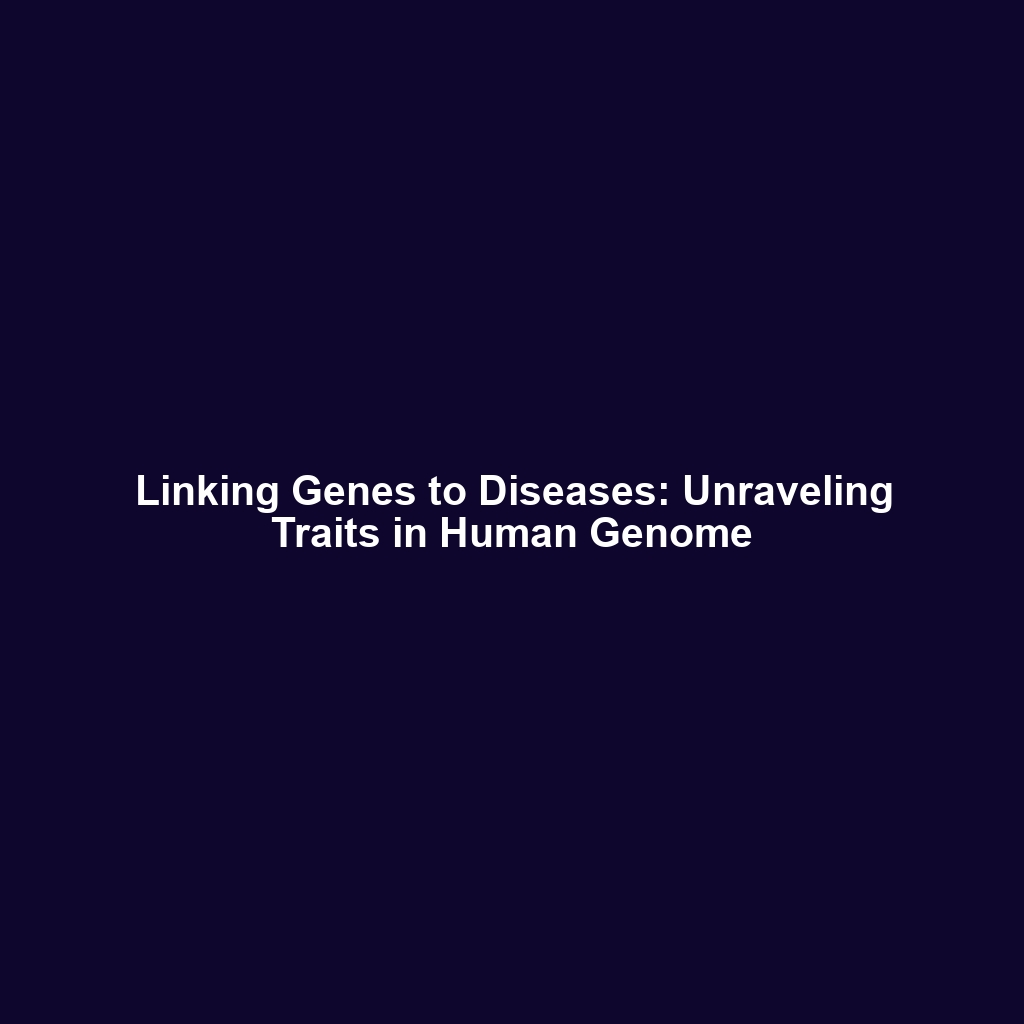Linking Genes to Complex Traits and Diseases: Insights from the Human Genome Project
Category: Human Genome Project
Topic: Current research focuses on linking specific genes to complex traits and diseases (e.g., heart disease, diabetes).
Introduction
Current research in genetics is increasingly focused on understanding how specific genes are linked to complex traits and diseases such as heart disease and diabetes. This area of study is significant within the broader context of the Human Genome Project, which aimed to map the entire human genome and understand the genetic basis of human health and disease. As the Human Genome Project lays the groundwork, researchers are now investigating the intricate relationships between genetic variations and health outcomes, opening up new avenues for personalized medicine and targeted therapies.
Key Concepts
Understanding Complex Traits
Complex traits and diseases are influenced by multiple genes and environmental factors. Key concepts to understand in this area include:
- Gene-Environment Interactions: The interplay between genetic predispositions and environmental influences that contribute to disease risk.
- Polygenic Traits: Traits that are affected by variations in several genes, such as obesity or hypertension.
- Genome-Wide Association Studies (GWAS): Research methods used to identify genetic variants associated with complex traits.
These concepts highlight the intricate relationships between genes and complex diseases, pivotal in the ongoing research stemming from the Human Genome Project.
Applications and Real-World Uses
Research on linking specific genes to complex traits has significant applications, including:
- Personalized Medicine: Utilizing genetic testing to tailor treatment plans for individuals based on their unique genetic makeup.
- Predictive Medicine: Understanding genetic risk factors can lead to early interventions for diseases like heart disease.
- Public Health Strategies: Identifying populations at higher genetic risk for diseases can improve targeted health interventions.
Examples of how this research is used in the Human Genome Project include developing risk assessments based on genetic profiles for diabetes management.
Current Challenges
Despite advances in research, several challenges persist:
- Data Complexity: The vast amount of genetic data can be difficult to analyze effectively.
- Ethical Considerations: Genetic information privacy and potential discrimination based on genetic predispositions.
- Causal Relationships: Establishing definitive links between specific genes and complex traits remains challenging.
These issues highlight the ongoing challenges in studying the link between genetics and disease, requiring further scientific and ethical exploration.
Future Research and Innovations
The future of research in linking genes to complex traits looks promising, with several innovations on the horizon:
- Next-Generation Sequencing: Enhanced technologies will allow for deeper exploration of genetic variants.
- CRISPR Technology: This gene-editing technology paves the way for potential corrections of faulty genes associated with diseases.
- Integrative Genomics: Combining genomic data with other biological datasets to provide a more holistic view of disease processes.
These advancements could significantly impact our understanding of disease etiology and treatment as derived from the Human Genome Project.
Conclusion
Current research linking specific genes to complex traits and diseases, such as heart disease and diabetes, plays a crucial role in advancing our understanding of human health. In the context of the Human Genome Project, it opens new pathways for personalized medicine and public health strategies. Continued exploration in this field is essential as we strive to decode the genetic underpinnings of complex diseases. For further reading, please explore our sections on genetic testing and public health applications.

Leave a Reply